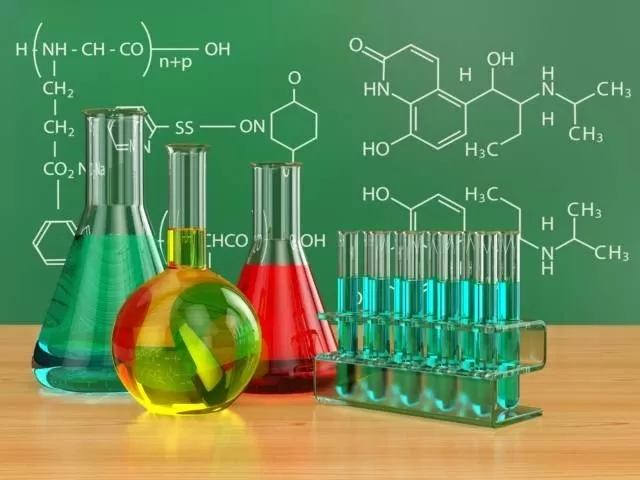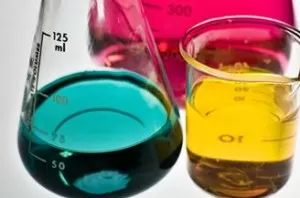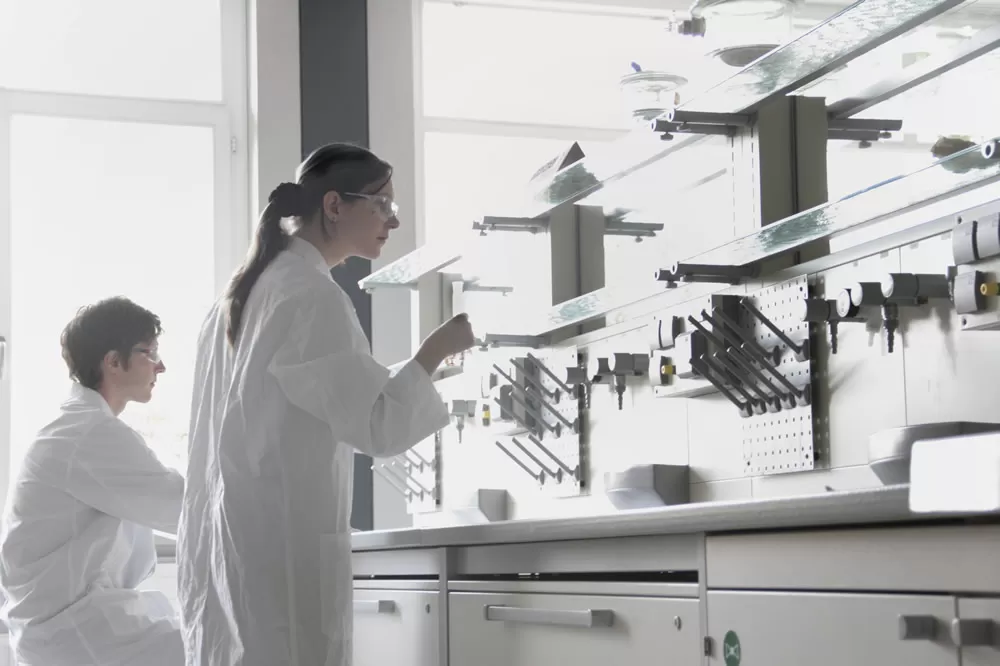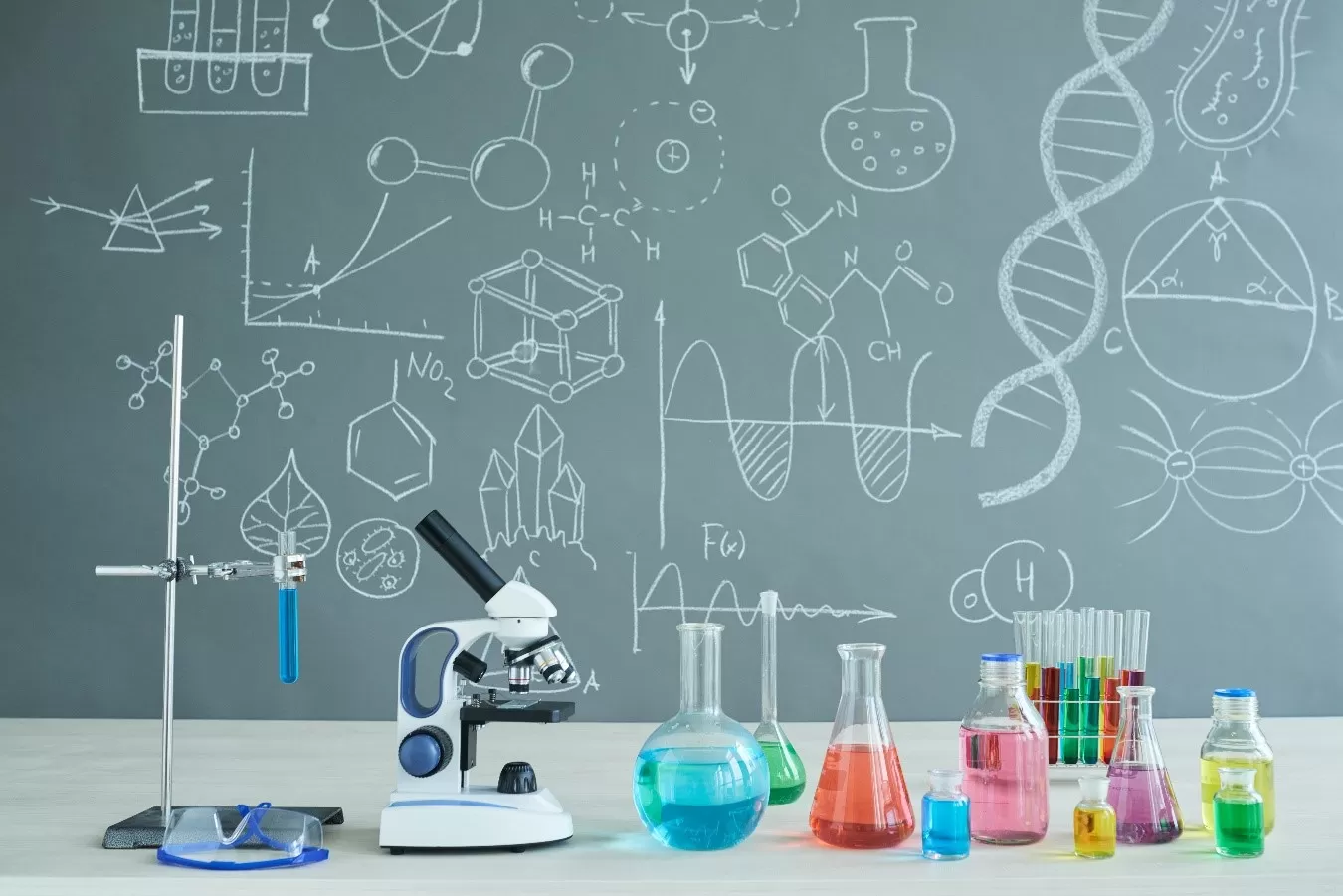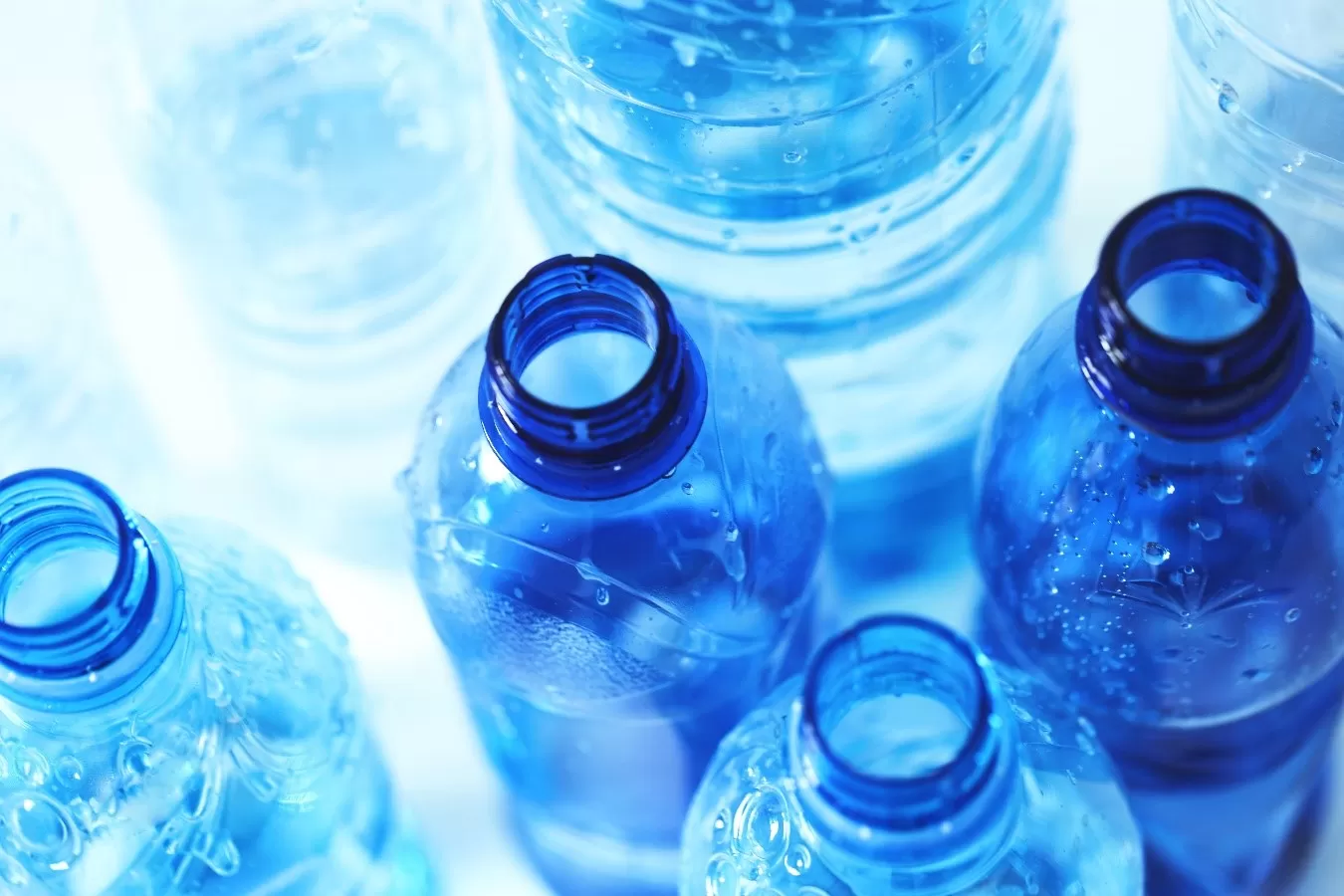Platinum
Chemical Glossary Terms

|
A B C D E F G H I J K L M N Ñ O P Q R S T U V W X Y Z
|
Chemical Terms begining with P

Palladium
Chemical element of Pd symbol, belonging to group 10 of the periodic table, of atomic number 46 and ...
Filter paper.
Porous material that is used to filter. There is a filter paper called ashless which, when calcined,...
Litmus paper
Impregnated tape of the litmus indicator that serves to verify if a solution is acidic or basic. The...
Conjugated pair.
Term that refers to the pair of species: acid and the species that results from the loss of a proton...
Paramagnetism
Property of the substances in which the atoms present a permanent magnetic dipole moment such that t...
Free couple
Valence electrons that are not part of the link. They are also called solitary pairs. Sometimes, wit...
Particle
Basic corpuscular constituent of matter. Posse mass and its dimensions are so small that it can be c...
Pentane
Alcano found in oil. It has three chain isomers: n-pentane, isopentane and neopentane. It is used as...
Pentanol
Alcohol derived from n-pentane that can occur as three different isomers. L-pentanol is a colorless ...
Penteno
L-pentene is a colorless liquid, soluble in alcohol and ether and insoluble in water, which is obtai...
Peptide
Polymer formed by few units of amino acids joined by peptide. The amino acid unit present at one end...
Peroxiacilo
Radical oxidant, of formula CH3COO- 2. With NO2forma peroxycyl nitrate (PAN) that is considered the ...
Atomic weight
Relative weight of an element with respect to another that is chosen as a pattern. The current stand...
Weight.
Force with which the bodies are attracted to the center of the earth with acceleration equal to that...
Petroleum
Mineral oil constituted by hydrocarbons of diverse composition and in very variable proportions acco...
pH (of Hydrogenions factor, written as a phaktore factor).
pH = -log {H +}. Minus the base 10 logarithm of the molar concentration of hydrogen or hydronium ion...
Pycnometer
Glass device, of exactly known volume and weight, which is used to measure the density of solids and...
Pigment
Finely divided opaque solid that is part of the ingredients of a paint and improves the resistance t...
Battery
Device that transforms into electrical energy the one developed in a chemical reaction.
Pipette
Narrow glass tube used to measure small amounts of liquids and transfer them to another glass contai...
Pyrimidine
Heterocyclic compound consisting of a six-membered unsaturated ring containing two nitrogen atoms in...
Pyrite (gr. Pyrites -larr; pyr, fire).
Iron sulphide (FeS2), bright mineral, yellow gold, used in the manufacture of sulfuric acid. Mineral...
Pyrolysis
Decomposition of a substance into simpler substances due to heating in a limited or very limited oxy...
Pyroxenes
They are metasilicates usually iron and magnesium. Its crystallization can be rhombic and is called ...
Plasma
State of matter characterized because all its atoms are ionized, although the system is electrically...
Plastic
Polymeric organic compounds capable of being shaped by the action of pressure and heat. Plastics are...
Silver
Ag element chemical element, belonging to group 11 of the periodic table, of atomic number 47 and at...
Platinum
Chemical element of symbol Pt, belonging to group 10 of the periodic table, of atomic number 78 and ...
Lead
Chemical element of symbol Pb, belonging to group 14 of the periodic table, of atomic number 82 and ...
Plutonium
Chemical element of Pu symbol, belonging to the series of actinides, of atomic number 94. It is a ra...
Link Polarity
Non-uniform distribution of the electronic charge in the link due to the difference in electronegati...
Polarimeter
An instrument that measures the angle that the light has deviated from its original path by passing ...
Atomic polarization
Phenomenon by which a cation and a nearby anion interact electrostatically so that mutual deformatio...
Polyamide
Amide polymer. They are used as synthetic textile fibers formed by long polymer molecules that posse...
Polyvinylchloride
Thermoplastic polymer obtained by polymerization of chloroethene. It is used in the manufacture of d...
Polyester
Synthetic textile fiber formed by long polymer molecules that offer different structures depending o...
Polymerization
Reaction in which macromolecules, the polymers, are obtained from small molecular units. The reactio...
Polymer
Complex molecule, long chain, formed by many units called monomers. The characteristics of the polym...
Poliprotic
Term that refers to all those acids that have more than one replaceable hydrogen. For example, H2SO4...
Polysaccharide
Polymer formed by very long chains of monosaccharides. They are divided into homopolysaccharides and...
Polonium
Po element chemical element, belonging to group 16 of the periodic table, of atomic number 84. It is...
Potassium
Chemical element of symbol K, belonging to group 1 of the periodic table, of atomic number 19 and at...
ppm
Parts per million. Way to measure small concentrations. 300 ppm equals 0.03%. Pre-adaptation Charact...
Precipitation
Chemical reaction consisting of the formation of a solid within a solution. It can be produced by pa...
Precipitate
Substance formed when a solid is deposited at the bottom of a container because a chemical reaction ...
Atmospheric pressure
Pressure exerted by the mixture of gases that form the atmosphere. Its value is very large, but as i...
Vapor pressure
Pressure in which a liquid and its value can coexist in equilibrium, that is, the rate of evaporatio...
Osmotic pressure.
Force per unit area exerted by the solvent on a semipermeable membrane during the osmosis process. S...
Partial pressure
Pressure exerted by a gas and a mixture of ideal gases. Equivalent to what this gas would do if alon...
Pressure.
Strength per unit area. Pressure, the term most commonly applied to gases, is expressed in atmospher...
Principle of avogadro
Principle that indicates that equal volumes of different gases in the same conditions of pressure an...
Principle of conservation of energy
Principle that indicates that energy is constant throughout the universe. It is not created or destr...
Principle of conservation of mass
Pricnipio that establishes that the mass of the reactants is equal to the mass of the products of th...
Pauli's exclusion principle
Principle enunciated by Pauli in 1925 that states that the same atom can not exist two electrons tha...
Begining of uncertainty.
It establishes the physical impossibility of knowing exactly the trajectory of particles like the el...
Principle of Le Châtelier
Altering an equilibrium system causes the equilibrium position to move in the direction opposite to ...
Reversible process
Chemical reaction or physical change in which products can react to give back the initial substances...
Endothermic process
Reaction or chemical process that absorbs heat. When the enthalpy variation is positive, there has b...
Exothermic process
Reaction or chemical process that releases heat. In a chemical reaction, when the enthalpy variation...
Ionic product.
Multiplication of the actual concentrations of the cation and the anion in equilibrium, raised to th...
Product.
Substance that is formed during a chemical reaction. For example: when mixing a silver nitrate solut...
Promise
Chemical element of symbol Pm, belonging to the series of the lanthanides, of atomic number 61. It i...
Propane
Saturated gaseous hydrocarbon, present in natural gas, obtained from the lowest boiling point fracti...
Periodic property.
Characteristic of an element that varies regularly in the periodic table. Some periodic properties d...
Property.
Characteristic of a substance that contributes to differentiate it from others. These can be: intens...
Protactinium
Chemical element of symbol Pa, belonging to the series of the lanthanides, of atomic number 91. It i...
Protease
Enzyme that breaks peptide bonds, separating proteins and polypeptides. They are also called proteol...
Protein
Natural polymer formed by the union of amino acids by peptide bonds. Proteins play crucial roles in ...
Proteolysis
Chemical or enzymatic decomposition of proteins by breaking the peptide bonds that bind to the const...
Proton
Subatomic particle with a positive charge. The number of protons in the nucleus of an atom is called...
Salt bridge
Inverted U-shaped glass tube containing a solution of a strong stable electrolyte (KCl, NaCl, KNO3) ...
Critical point
Conditions of pressure and temperature from which a gas can not liquefy. The critical point of the w...
Freezing point.
Temperature at which a solid phase and a liquid phase coexist in equilibrium. It applies to both pur...
Boiling point
Temperature at which the vapor pressure of a liquid equals the outside pressure. If it is 1 atm it i...
Equivalence point
Point of a valuation in which the reaction has been completed.
Melting point
Temperature, at the pressure of 1 atm, in which a pure substance makes the change of state from soli...
Final point.
Moment generally reached in the course of an assessment when the indicator changes color to indicate...
Isoelectric point
PH value at which a charge resulting from a colloid is zero.
Normal boiling point.
Value of the boiling temperature at a pressure of one atmosphere. Normal indicates that its value wa...
Triple point
Coordinate of the phase diagram of a substance that shows values €‹€‹of pressure and tempera...
Purity.
Degree of decontamination of a reagent or product. It is expressed as a percentage: purity = weight ...
Temas de química mas buscados

Pinzas de laboratorio
Son un tipo de sujeción ajustable, generalmente de metal, que forma parte del equipamento de laboratorio, mediante la ...
¿Que es la Química? Química General
¿Qué es la Química General? La química general es la base de todas las químicas y en el...
Noticias de Química

Incremento de estudios online en el área científica
El mundo de la ciencia ha cambiado significativamente en los últimos años debido al av...
La importancia de estudiar química
La importancia de estudiar química La química es una de las ciencias fundamentales ...
¿Qué es un manipulador de alimentos?
¿Qué es un manipulador de alimentos? Un manipulador de alimentos es una persona que tr...
Cómo estudiar química según Sergio Jacinto Gil García
La química es la ciencia que se encarga de estudiar las propiedades, composición y tra...
Tierras raras
El nombre de tierras raras se ha dado a un conjunto de 17 elementos químico como lo son:...
Tipos de plásticos de la industria química
Los plásticos son materiales duraderos, ligeros y fáciles de modificar ya que est&aacu...




